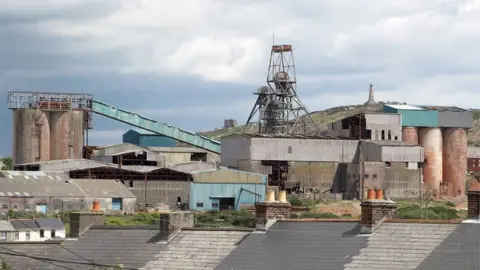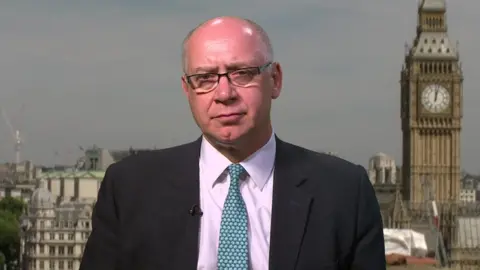Lithium mining in Cornwall gets £1m boost
 Thinkstock
ThinkstockA project to explore for lithium in hot springs in Cornwall has received a £1m investment.
Global demand for lithium - used in batteries for mobile phones and cars - is expected to triple in the next decade.
One of the investors said Cornish Lithium could become a "very significant player" in the industry.
The money will be used to decide where to put the first drill holes.
CEO Jeremy Wrathall said the county is the only current known source in the UK and the company will use data to "prioritise the best locations for subsequent drilling and sampling".
"There is a lot of excitement in the technical world about this," he said. "We hope to be the domestic source of lithium for the UK."

He said the £1m investment would be enough for more than a year - but that production is at least five years away.
The investors are Peter Smedvig, founder of investment firm Smedvig Capital, Keith Liddell, a metallurgical engineer and former mining CEO, and Chris von Christierson, director and principal of mining firm Southern Prospecting.
Mr Liddell told Reuters he believed Cornish Lithium could become a "very significant player" in the lithium industry in Britain and Europe.
'Strategic importance'
High levels of lithium were indentified in the water in Cornish mines in the 19th Century, but there was no market for it at that time.
The government plans to ban new petrol and diesel cars from 2040, raising the prospect of a huge increase in demand for lithium.
In January, Cornish Lithium said it had reached a mineral rights agreement with Canada's Strongbow Exploration, which bought South Crofty tin mine on Pool in 1998.
Strongbow Exploration will get royalties from any lithium extracted by Cornish Lithium.
The metal would be extracted by drilling at least 400m (1,300ft) into rock and pumping out lithium-laden water.
Most lithium is produced in South America, Australia and China, but the UK government has earmarked it as a metal of strategic importance to the country.
